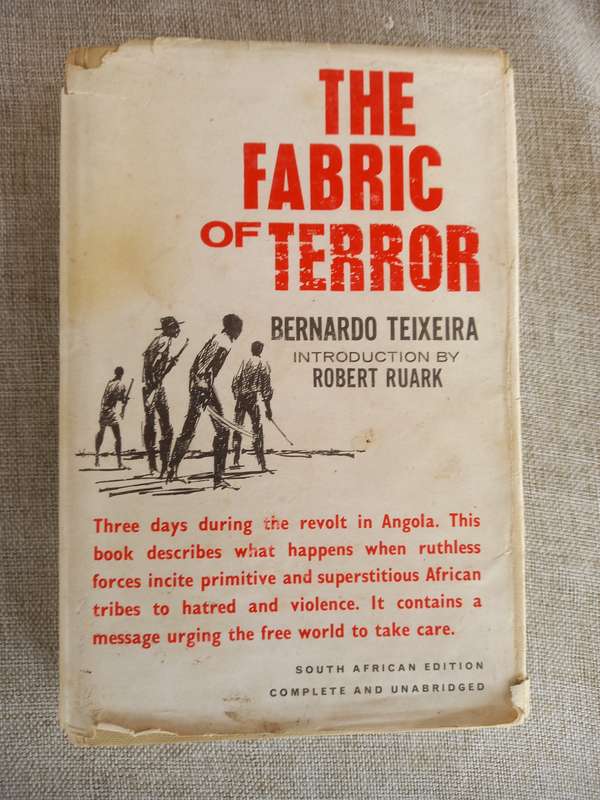
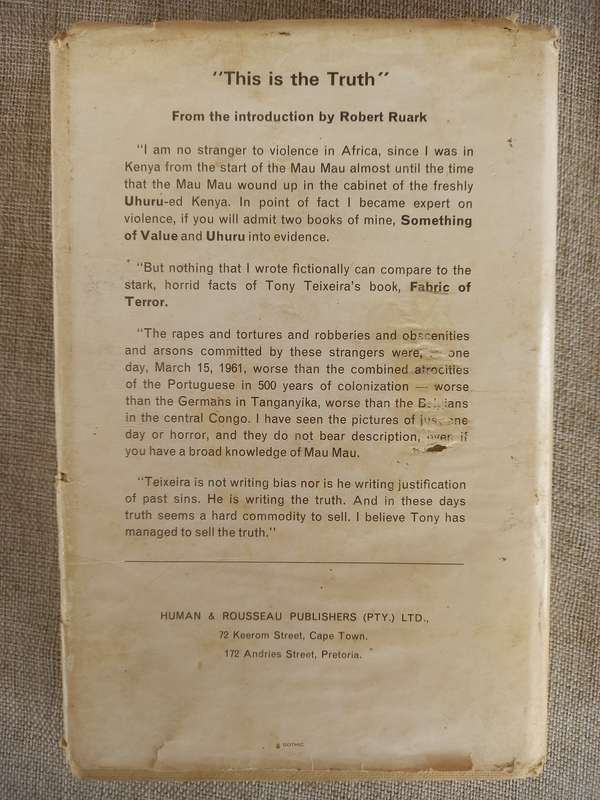
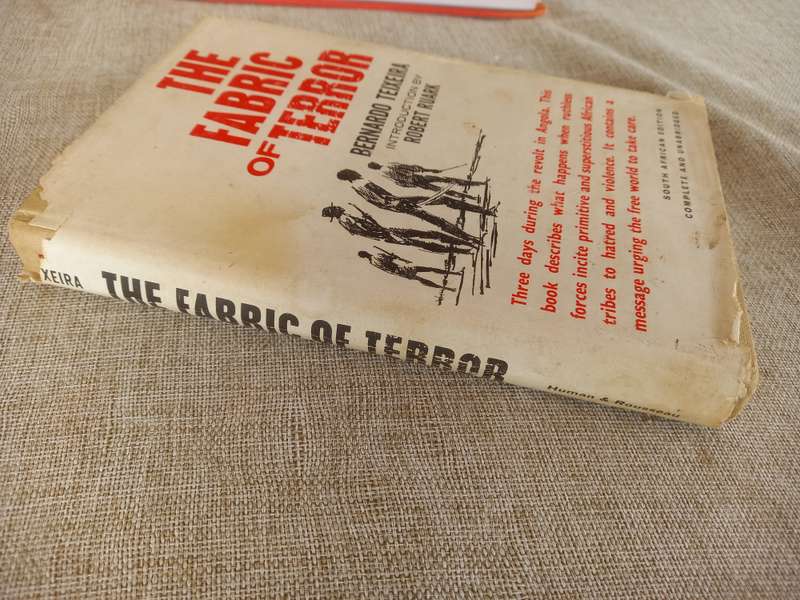
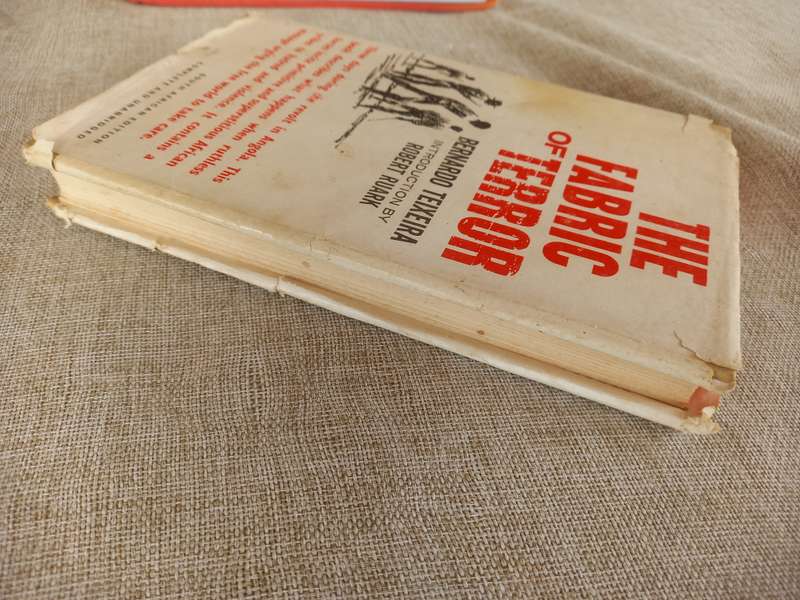
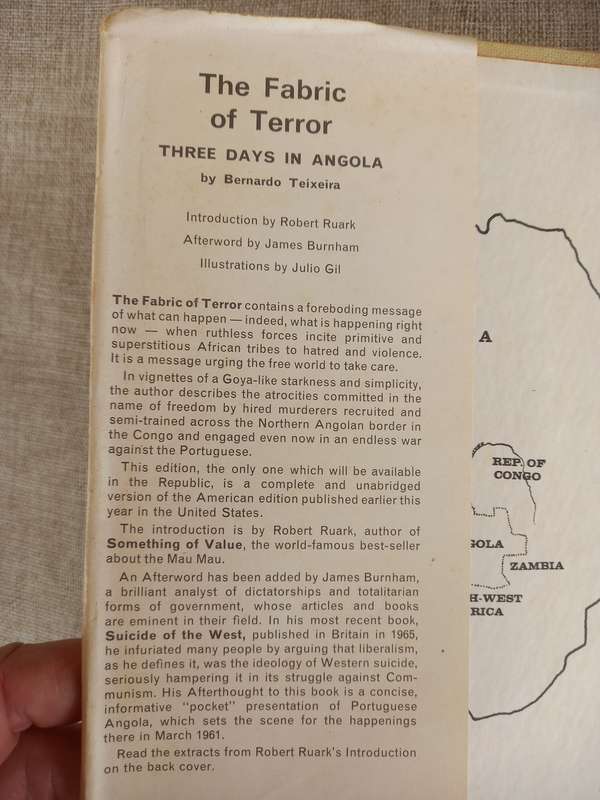
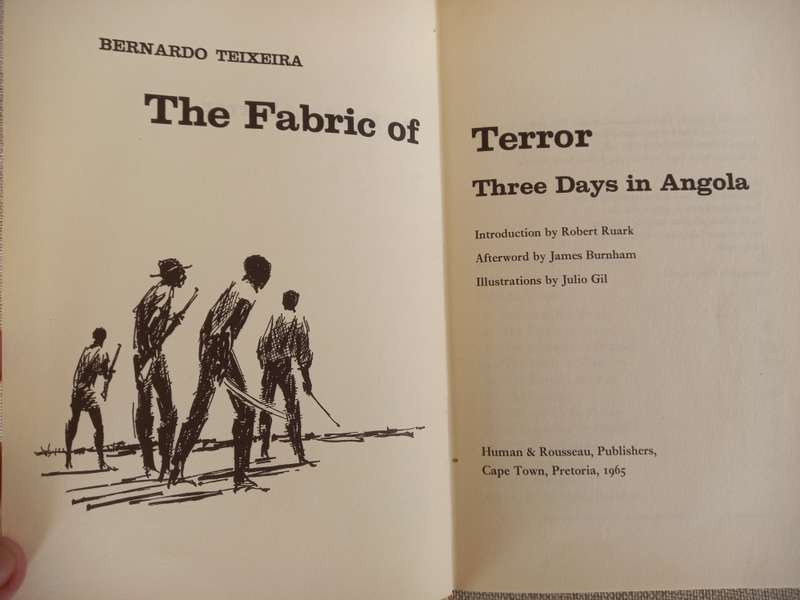

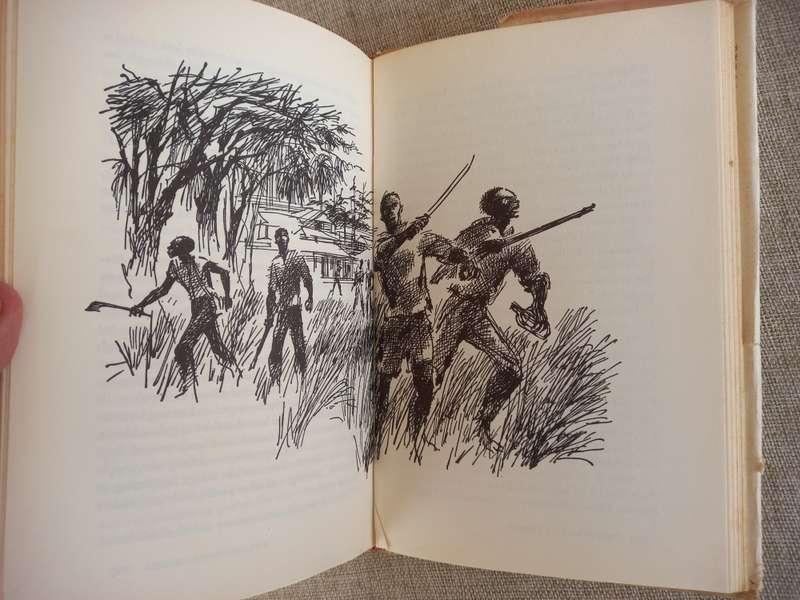
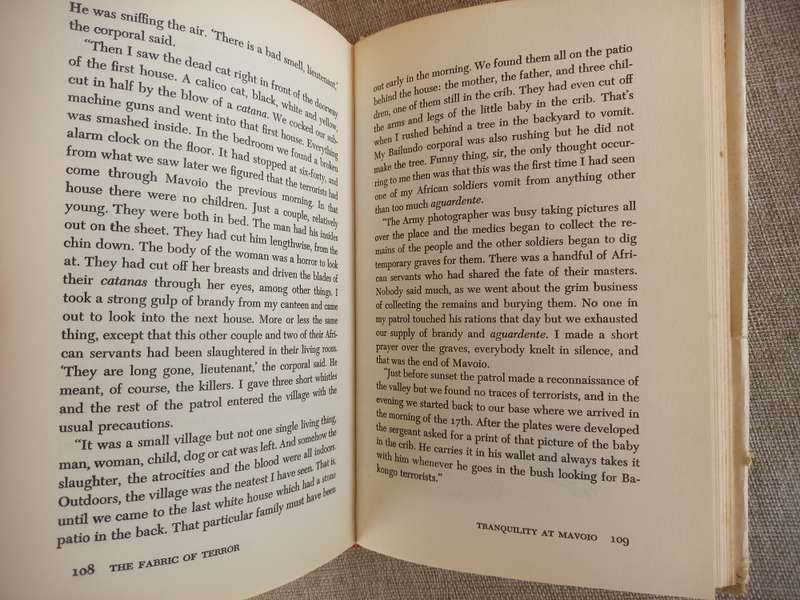
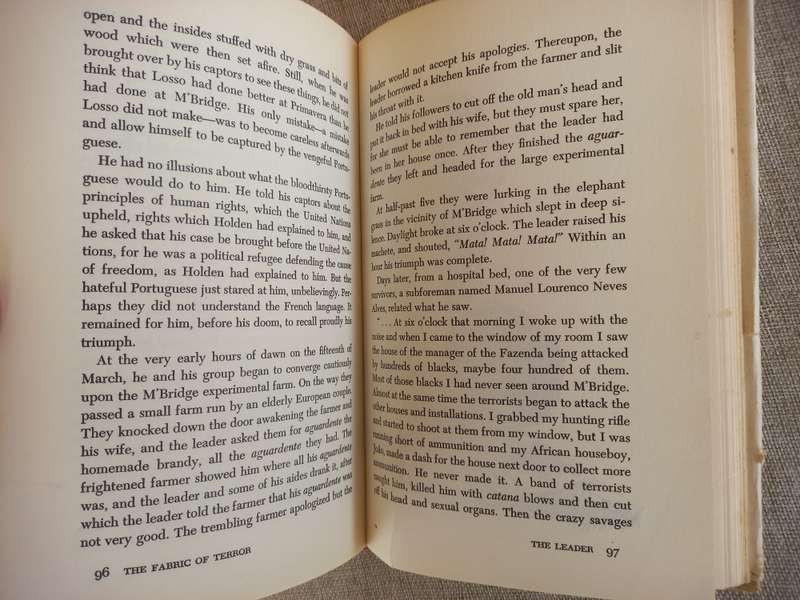
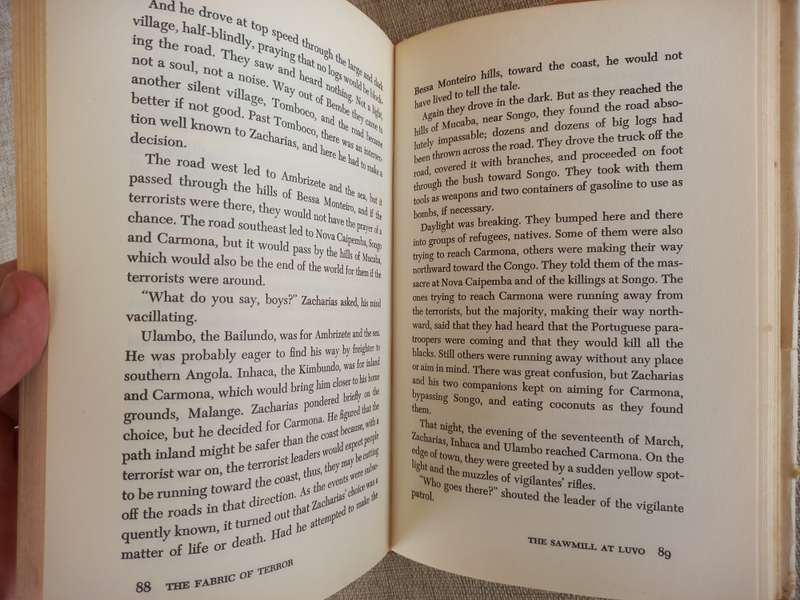
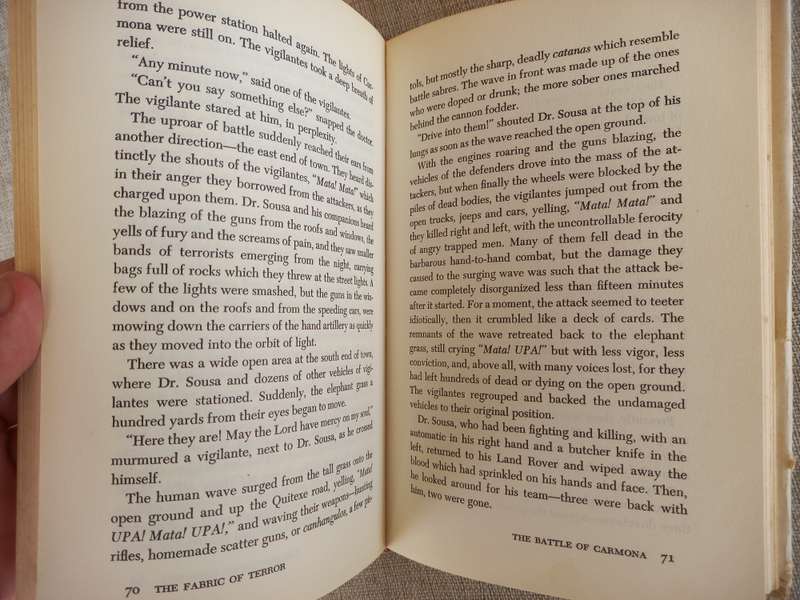
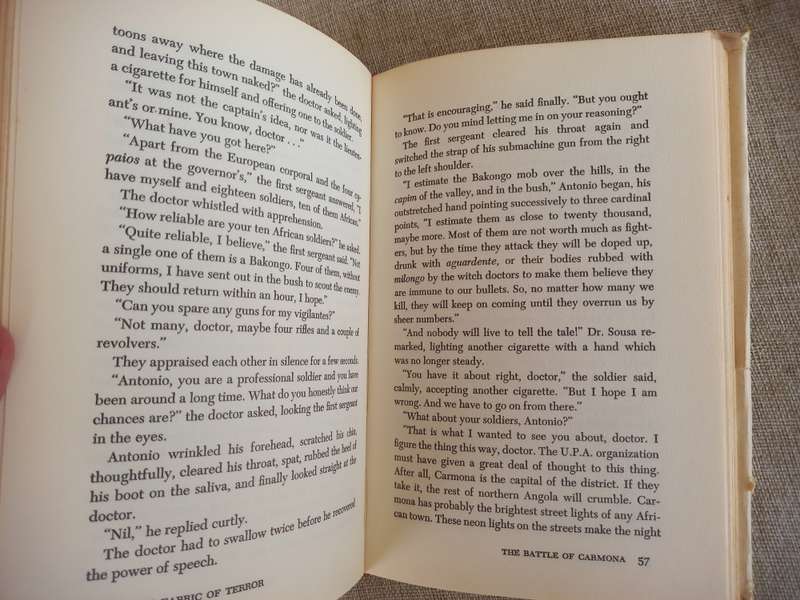
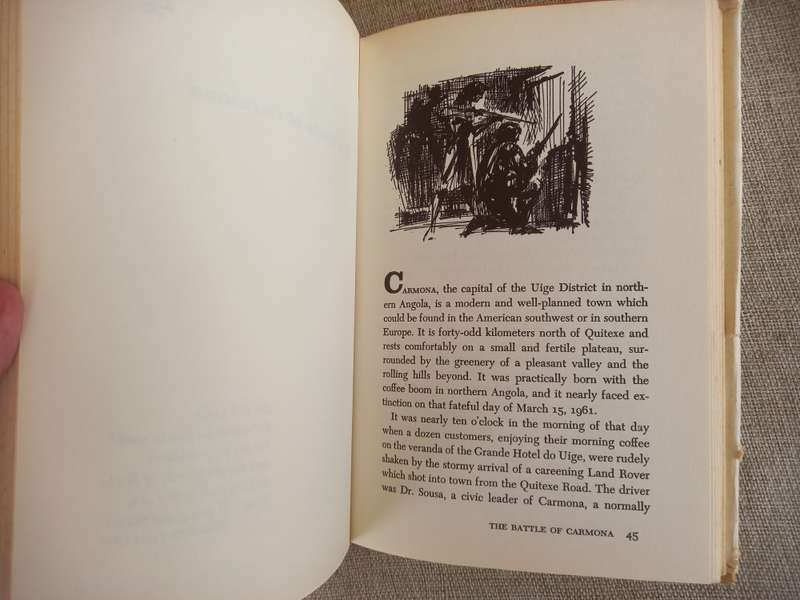





The Fabric of Terror,: Three days in Angola - Bernardo Teixeira
Check my rate
| Main centres: | 1-3 business days |
| Regional areas: | 3-4 business days |
| Remote areas: | 3-5 business days |



















| Main centres: | 1-3 business days |
| Regional areas: | 3-4 business days |
| Remote areas: | 3-5 business days |
Following the Belgians overnight departure from the neighboring Congo, a large-scale cross-border invasion took place into North-Eastern area of Portuguese Angola by terrorist gangs intent on occupying the region. The area was poorly served by road communications and was thinly populated by small, hard-scrabble farms settled by Portuguese immigrants who had been enticed to Africa in the hope of making better lives for themselves. Servicing these agriculturalists were a number of [then] small towns and villages, all but the largest of which comprised a couple of general stores, a garage or two, police station and post office. Portuguese military forces in Angola at the time were relatively small and their internal and external military intelligence capability was both risible and negligent.
The terrorist invasion caught the Portuguese completely by surprise. Within a couple of days the affected region was completely overrun and only the larger settlements held out desperately until reinforcements could be hastily thrown together and sent up-country. Portuguese men, women and children and their loyal African employees were butchered out of hand - typically using machetes. In one particularly shocking episode, Portuguese women were brutalized and fed through the circular saw at a sawmill. Now long forgotten elsewhere, the events of 1961 made a forceful impression on the Portuguese psyche and the diligent researcher will find plentiful corroborative accounts and photographs on the internet posted by Portuguese sources. The events of the Congo and Angola can also be said to have helped to inform socio-political values among both Blacks and Whites in countries such as Southern Rhodesia and South Africa at the time. Blacks - that violence is a viable alternative to negotiation. Whites - that anarchy and violence lurk just beneath the surface in Africa.
Hardcover in good condition / slight wear to the dustjacket